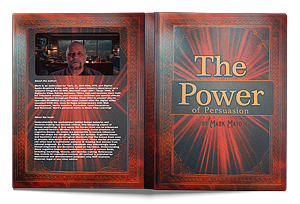At all cost: Avoid using images belonging to others without permission
In the modern digital era, maintaining an online presence is vital for businesses. Websites serve as crucial platforms for presenting products or services and connecting with prospective customers. To create distinctive and captivating websites, businesses often use images, but it’s imperative to source them legally and ethically. This is where royalty-free images become invaluable.
Use Royalty-free images
Royalty-free images can be utilized without ongoing royalties or fees, usually obtained through a one-time licensing payment that permits specific usage. There are multiple advantages to using royalty-free images for businesses, which we will discuss in depth in this article.
First and foremost, royalty-free images save businesses substantial sums, as they eliminate the need for recurring fees for image usage. In contrast, using non-royalty-free images can lead to expensive legal fees and penalties if the image owner decides to take legal action.
Furthermore, using royalty-free images ensures that businesses are legally and ethically using images. Improper licensing can result in copyright infringement, damaging a business’s reputation and potentially causing legal issues. Employing royalty-free images helps businesses avoid such risks and maintain a positive image with their customers.
Ease of access is another advantage of royalty-free images. Numerous online platforms offer royalty-free images, simplifying the process of finding and using suitable images for businesses. This conserves time and resources that would otherwise be spent on creating custom images or searching for unrestricted images.
Properly licensed
Properly licensed and attributed images can also enhance a website’s search engine rankings, benefiting a business’s SEO efforts. This leads to greater visibility and traffic, helping businesses reach a wider audience and ultimately boosting sales and revenue.
Using a range of images can also make a website more visually appealing and engaging. Royalty-free images allow businesses to incorporate more images without extra costs, resulting in a richer and more immersive user experience. This encourages visitors to stay on the website longer, increasing the likelihood of conversions.
Royalty-free images also contribute to a consistent brand image. By using on-brand and visually cohesive images, businesses can fortify their brand identity, making their website more memorable for visitors. This can enhance brand recognition and loyalty over time.
The peace of mind provided by using royalty-free images is another notable benefit. Businesses can be confident that they are using images legally and ethically, reducing the risks of legal issues and reputational damage. This allows businesses to concentrate on other aspects of their operations, such as expanding their customer base or refining their products or services.
Lastly, royalty-free images can foster creativity and innovation. By using images from various sources, businesses can experiment with diverse styles and themes, leading to novel ideas and strategies that can set them apart from competitors.
Recommendations
I use Dreamstime: Stock Photos & Images, Vectors, Video & Audio, their prices are very reasonable compared to most other outlets. I’m dropping an affiliate link here and an ad so that you check them out. If you happen to license any media I will receive a small commission, this does not increase the cost to you. Thank you
Key Takeaway
The key takeaway is that using royalty-free images is essential for businesses aiming to build visually engaging websites while steering clear of legal and ethical problems. This approach offers numerous benefits, including cost savings, improved SEO, enhanced brand recognition, and peace of mind. By leveraging royalty-free images, businesses can strengthen their online presence and drive growth and success in the competitive market. Plus, the sense of freedom that comes from doing the right thing is undeniable.











